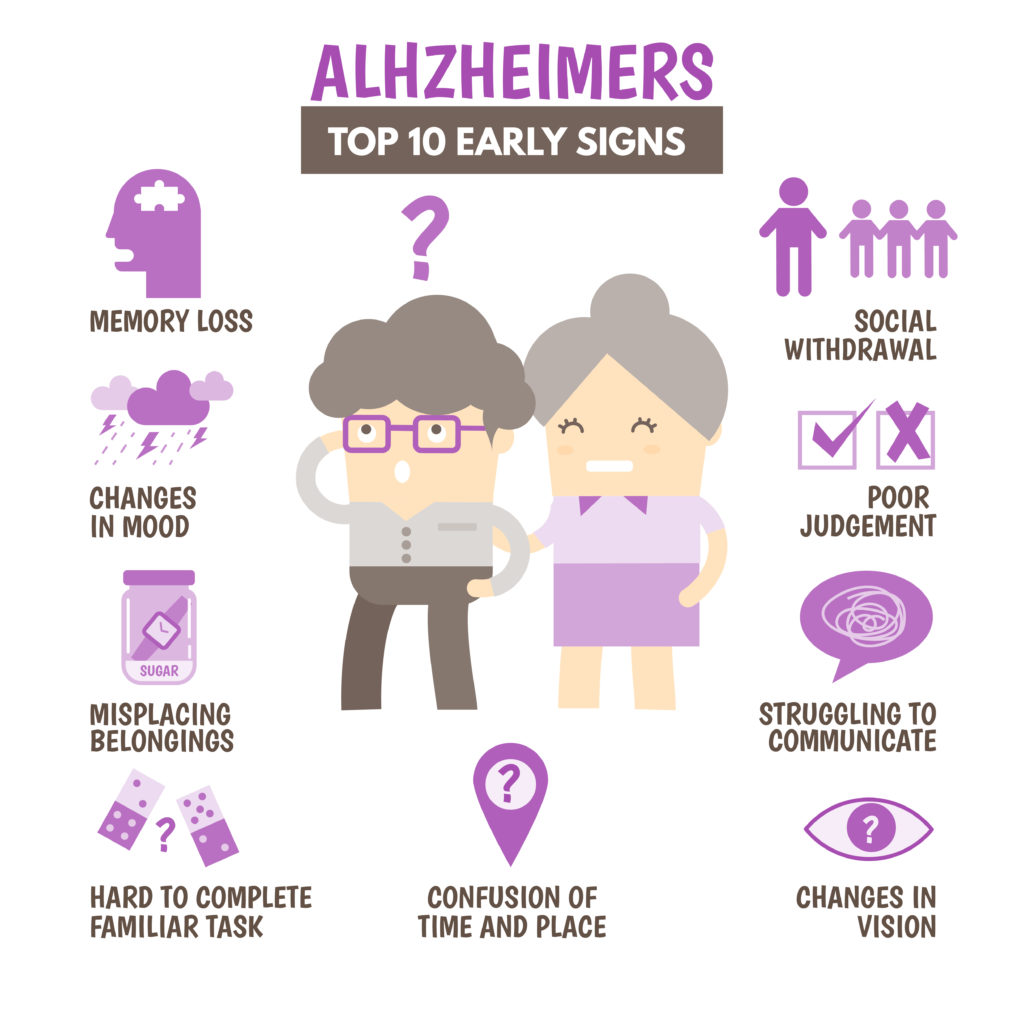Planning for the Future: Tips for Caregivers
by Admin
Posted on 12-04-2024 12:47 PM

Despite your best efforts, caring for someone with dementia becomes harder as the condition progresses, and the person you are caring for becomes more dependent on you. This is a time when many caregivers need more support for themselves.
 The following tips are to help caregivers take care of themselves and plan for the future. Avoid isolation and loneliness by keeping up with social activities and contact with others as much as possible. Take care of your own health. Join a caregiver support group to connect with others living with the day-to-day issues of dementia and facing practical challenges, grief and loss.
The following tips are to help caregivers take care of themselves and plan for the future. Avoid isolation and loneliness by keeping up with social activities and contact with others as much as possible. Take care of your own health. Join a caregiver support group to connect with others living with the day-to-day issues of dementia and facing practical challenges, grief and loss.
Find More Resources on Caregiving
Talk to caring people for practical caregiving information and help finding local resources/services. If the person you care for asks questions repeatedly, has trouble performing simple tasks, or forgets recent events, he or she may have a form of dementia. There are several causes for dementia, so you should have the person diagnosed by a doctor. Some dementia may be caused by factors that can be treated, such as drug interactions, severe diabetes, vitamin deficiencies, or depression. The most common kind of dementia is alzheimer's disease. It is not curable. There are many helpful resources for family caregivers coping with dementia, including:.
 https://scholar.google.com/scholar_case?case=1759896018582637021&q=%22memory+care%22&hl=en&as_sdt=2006
https://scholar.google.com/scholar_case?case=1759896018582637021&q=%22memory+care%22&hl=en&as_sdt=2006
Caring for the caregiver is essential, especially when difficult behaviors present. Taking breaks makes it easier to cope with difficult behaviors. It also provides family caregivers with emotional strength to continue providing care. This is the reason why respite care is so valuable. Monica moore, msg, community health manager for the mary s. Easton center for alzheimer’s disease research at ucla (easton center) explains this best. Monica states, “the family caregiver alliance has found that 50% of caregivers die before the person they are caring for. This dramatic number is due to the fact that so many caregivers ignore their own physical and emotional needs while they are entrenched in caregiving.
Alzheimer’s and Dementia Care: Help for Family Caregivers
Many people may be able to help in different ways. These people might include family members, friends, professional caregivers, community organizations, and others with dementia. For example, you can: ask friends or family to help with needs like cooking, paying bills, transportation, or shopping. If you live alone, find people you trust who can visit often. Consider letting trusted neighbors know of your diagnosis so they can help if needed. Use social service agencies, local nonprofits, and area agencies on aging to connect with in-home help, transportation, meals, and other services.
When caring for someone with dementia, it's easy to let your own physical and mental health slide. But don't forget about your own self-care. In particular, one of the best things you can do as a caregiver is allow others to help you, being clear about what help looks like. Maybe that's relying on a grocery delivery service or asking a family member to take your loved one to a doctor's appointment now and then. Use this time away for yourself, filling it with whatever helps you relax and recharge. "one thing i find that caregivers really struggle with mentally is when to include more people in the caregiving process — particularly, when to let the professionals take over," explains dr.
When an aging loved one is diagnosed with alzheimer’s disease, their family often chooses to care for them at home for as long as possible. The comforts of a familiar environment can be highly beneficial, but keeping alzheimer’s patients at home becomes increasingly difficult as they decline. Each day brings new challenges, unexpected behaviors and changes in functional abilities. There are no one-size-fits-all solutions in dementia care, so alzheimer’s caregivers usually devise their own strategies for dealing with a loved one’s unique mix of symptoms. Furthermore, the effectiveness of certain strategies is likely to change throughout the course of a patient’s illness.
The alzheimer's and dementia care journey the challenges and rewards of alzheimer's care.
Alzheimer’s disease is a brain condition — and the most common cause of dementia. The symptoms of alzheimer’s disease get worse over time. Your loved one may experience a decline or change in: memory. Behavior. Personality. Alzheimer’s disease affects approximately 24 million people across the world. It typically affects people older than 65. In fact, nearly a third of people older than 85 have alzheimer’s disease. There are different stages of alzheimer’s disease. Some organizations explain the stages as mild, moderate and severe, while other organizations refer to the different stages as early, middle and late. However your loved one’s healthcare provider defines alzheimer’s disease, it’s important to know that it’s a unique journey for each person.
When you’re giving your all to care for a loved one with dementia, how do you find the time and energy for self-care too? even small changes can make a difference. Hopehealth volunteer ki miller cared for her husband, tuck, through his journey with lewy body dementia , and now co-facilitates virtual support groups for other dementia caregivers. She shares strategies you can start today.